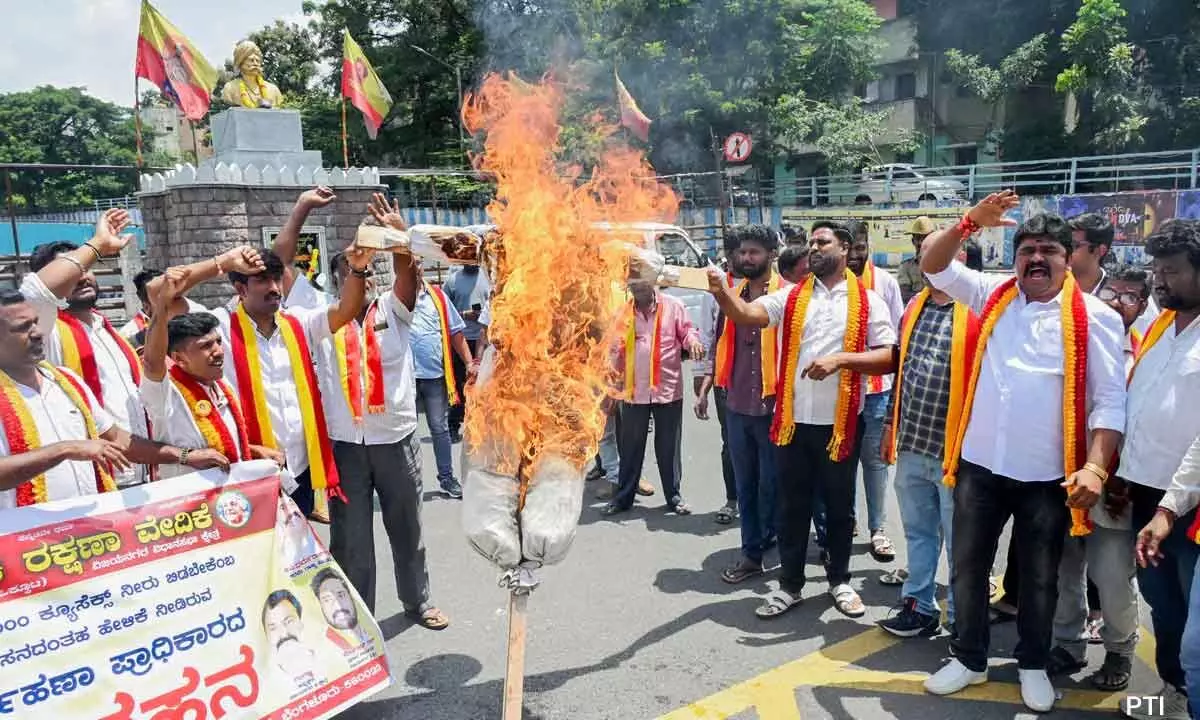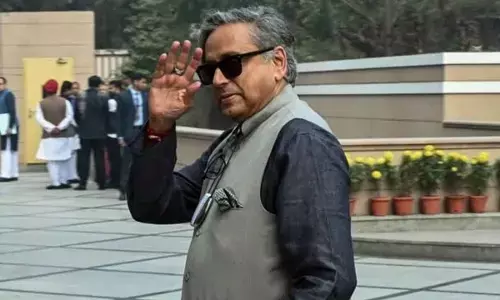Karnataka Farmers' Protest: Bengaluru Shutdown Over Cauvery Water Release

Explore the latest developments surrounding the Bengaluru bandh triggered by a water-sharing dispute, including protests, citywide shutdown, corporate reactions, and historical context.
Farmer organizations in the state of Karnataka have issued a call for a shutdown in the city of Bengaluru today, expressing their strong objection to an order put forth by the Cauvery Water Management Authority (CWMA). This order demands the release of a substantial quantity of 5,000 cubic feet per second (cusecs) of water to the neighboring state of Tamil Nadu. Moreover, another statewide shutdown is scheduled to take place this Friday, adding to the gravity of the situation.
The situation on the ground has escalated, with more than 200 protesters finding themselves in police custody. Their arrest came about due to their defiance of prohibitory orders as they attempted to stage a march from Vidhana Soudha to Raj Bhavan. Notably, the march was led by prominent figures including Vatal Nagaraj, Chairman of the federation of pro-Kannada organizations, his deputy Praveen Shetty, and other leaders.
Initially, pro-Kannada organizations had organized protests at various locations, including Freedom Park, Raj Bhawan, and Town Hall. However, the police had issued a clear warning that demonstrations would be permitted exclusively at Freedom Park.
Reports indicate that police personnel have been strategically deployed in Bengaluru's Cottonpete area to maintain law and order during these turbulent times. As a result of the unrest, most businesses have shut their doors, with only those providing essential services remaining operational.
In response to the impending bandh (shutdown), Bengaluru Urban District Collector KA Dayanand has declared a public holiday for all educational institutions, including schools and colleges within the city. This move is aimed at ensuring the safety of students and staff members during the bandh on Tuesday.
While cab services will continue to operate as usual within the city, the situation is mixed for other businesses. Hotel and restaurant owners, represented by the Bangalore Hoteliers Association, have expressed their solidarity with the bandh, although their closure may be more pronounced during the Friday protests. Auto drivers have also thrown their support behind the strike, causing disruptions in public and private transport services.
The bandh is anticipated to have a profound effect on the normal functioning of Bengaluru, as schools, colleges, government offices, banks, ATMs, shops, and commercial establishments are all expected to remain shuttered. This widespread shutdown is indicative of the gravity of the situation and the collective resolve of the protesting groups.
Global corporations, including retail giant Walmart, tech titans Google, IBM, and consulting firm Accenture, have advised their employees in Bengaluru to work remotely from home on the day of the bandh. This proactive approach from major businesses reflects the disruptive nature of the protests on daily operations.
The underlying issue fueling these protests is the long-standing and contentious dispute between Karnataka and Tamil Nadu over water-sharing rights. This dispute, which spans over a century, has remained a persistent source of friction and disagreement between the two neighboring states.
It's worth noting that the release of water to Tamil Nadu has sparked deadly riots in Bengaluru before, notably in 2016 when the Supreme Court issued a similar directive. These past incidents serve as a backdrop to the current unrest and highlight the sensitivity of the issue.
Karnataka Chief Minister Siddaramaiah has, on Monday, articulated that his government will not suppress the protests but has strongly emphasized the paramount importance of maintaining peace amidst the ongoing turmoil. This balance between addressing grievances and ensuring public order remains a significant challenge for the state leadership.










